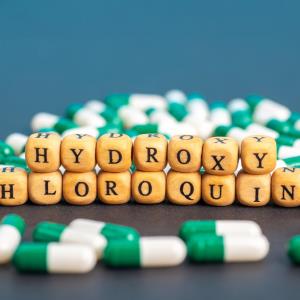Among patients receiving hydroxychloroquine for systemic lupus erythematosus (SLE), severe nonadherence to medication poses increased risks of SLE flare in the following year, early damage, and 5-year mortality, according to data from the SLICC* Inception Cohort.
Of the 1,849 cohort participants, 660 (88 percent women) who had been prescribed hydroxychloroquine for at least 3 months were included in the analysis. Serum samples of the participants were collected and analysed. Severe nonadherence was defined as a serum hydroxychloroquine level <106 ng/mL or <53 ng/mL for medication doses of 400 or 200 mg/day, respectively.
Outcomes included the risk of a flare (Systemic Lupus Erythematosus Disease Activity Index 2000 increase ≥4 points, initiation of prednisone or immunosuppressive drugs, or new renal involvement), damage (first SLICC/American College of Rheumatology Damage Index [SDI] increase ≥1 point), and mortality. Logistic regression and Cox proportional hazard models were used to estimate associations.
The median serum hydroxychloroquine was 388 ng/mL, with 48 patients (7.3 percent) having severe hydroxychloroquine nonadherence. Severe nonadherence was independently associated with greater odds of flare (odds ratio, 3.38, 95 percent confidence interval [CI], 1.80–6.42) and an increase in the SDI within each of the first 3 years (3 years: hazard ratio [HR], 1.92, 95 percent CI, 1.05–3.50).
There were 11 deaths recorded within 5 years. Three of these deaths involved patients with severe nonadherence (crude HR, 5.41, 95 percent CI, 1.43–20.39).
*Systemic Lupus International Collaborating Clinics (SLICC) Inception Cohort is an international multicenter initiative (33 centers throughout 11 countries).

